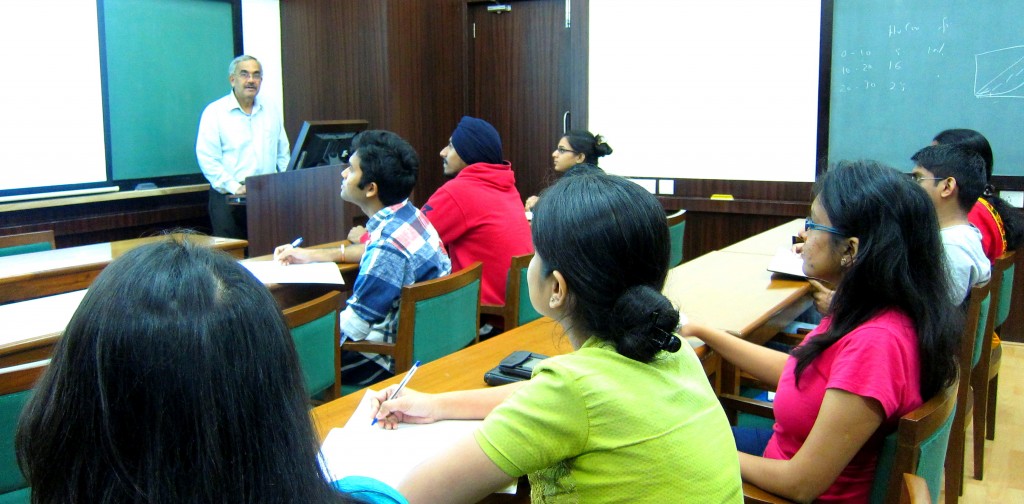
AboutThis is a two-year programme, which imparts students with a rigorous and hands-on training in Economics, with special emphasis on analytical and problem solving skills as well as exposure to emerging policy issues at the national and international levels. This programme involves a successful completion of either 16 courses or 15 courses and a Master’s thesis. It is aimed at all those with necessary quantitative prerequisites who would like to be grounded in economic analysis.
Admission EligibilityMinimum qualification for admission to M.Sc. programme includes one of the following degrees or their equivalents: B.A./B.Sc. in Economics/B.Com./B.Stat./B.Sc. (Physics or Mathematics)/B.Tech./B.E. with at least a second division for the Economics discipline and first division for other disciplines. The applicant must have studied mathematics at the higher secondary level. Course Structure and DurationThe Masters programme is typically, a two-year programme following a semester system. It can be extended up to a maximum of three years under a slow track system. To earn the MSc degree, a student is required to earn credits as per regulations in place, comprising core and elective courses. Each course is of 4 credits. The core courses include sequences comprising Microeconomics I & II, Macroeconomics I & II, and Econometrics I & II, also Mathematics for Economists and Development Economics. For elective courses, students will be required to choose from several elective courses offered in the subsequent semesters. The following is a list of possible Fields of specialisation / optional courses Continuation into Ph.D. programmeThose who successfully complete the M.Sc. programme at IGIDR and found eligible as per the rules could join the Ph.D. programme. Such candidates may be exempted from the course requirements and would receive stipends (under the existing rules) for three years. CostsM.Sc. students have to pay a tuition fee of Rs.25,000/- per semester. All students would be provided with residential accommodation towards which they have to pay hostel fee of Rs.1000/- per month, and water and electricity charges as per actual. The tuition fee may be revised from time to time. Financial AssistanceNeed-based scholarships are available to Masters students as per Institute’s norms. PlacementIn the past, M.Sc students from IGIDR have been placed in the corporate sector – a selected list of companies is provided in the section on past recruiters. Students from our M.Sc. program have also been admitted into prestigious Ph.D. programs abroad, e.g. Columbia University, University of Michigan at Ann Arbor and Carnegie Mellon University. |
